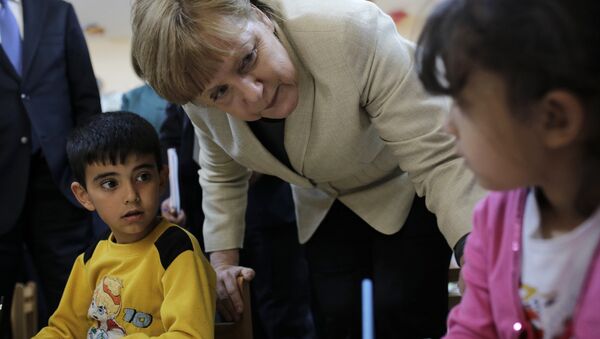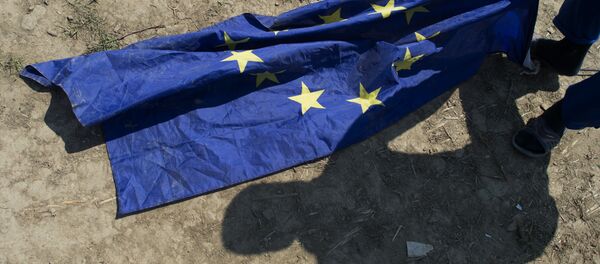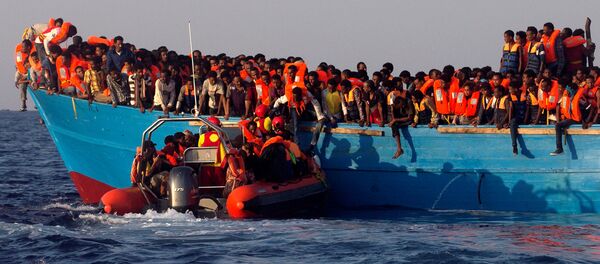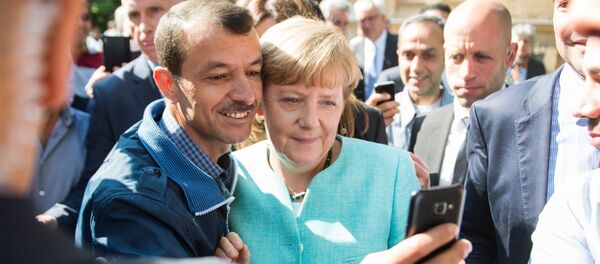The 37-year-old politician was a rising star in the party and intended to stand for election to the Bundestag next year, but has recently resigned in protest at Merkel's policies.
"I realized that there is no chance I can implement my political ideas and beliefs in the party," said Krah, who was chairman of the local CDU party branch in the Zschachwitz area of Dresden, and a member of Dresden's CDU district board.
Krah explained that the key reason for his exit is the open-door migration policy established by Merkel last year. He disagrees with her decision to allow migrants and refugees to live in Germany while their asylum claims are being processed, and thinks that only asylum seekers who have already had their application accepted should be allowed to enter the country.
"Only in Germany does it happen that somebody arrives at the border, says the word 'asylum' and is allowed to enter straightaway," Krah said.
As a result, the number of refugees and migrants arriving in Germany daily increased to a record 10,000 per day in September, and by the end of 2015 a record 1.1 million refugees and migrants had arrived in Germany.
Krah told Sputnik that he is concerned about Germany's ability to integrate the arrivals into its society.
"The same thing will happen, as in France and Belgium. We will have ethnically isolated residential districts, where a parallel society develops. These parallel societies are havens for organized crime and Islamic extremism," he said.
The final straw for the politician was the Chancellor's reaction to the party's recent election defeat in regional elections in the state of Mecklenburg-Vorpommern, where Merkel's own constituency is located.
Today I had the chance to explain my standpoint on RT International: https://t.co/NPlettOmDF
— Dr. Maximilian Krah (@KrahMax) September 22, 2016
The CDU gained just 19 percent of the vote, coming in third place after the SPD (30.6 percent) and newcomers Alternative for Germany (20.8 percent).
As Chancellor and party leader, Merkel said she took responsibility for the disastrous result. However, she added that "I still think we took the right decisions."
On September 19 Merkel's party suffered another blow in regional elections in Berlin. The center-left SPD received the largest share of the vote, 21.6 percent, followed by the CDU (17.6 percent), Die Linke (15.6 percent), the Greens (15.2 percent) and AfD (14.2 percent).
"On balance it was absolutely right, but it meant that ultimately we had insufficient control for a time," Merkel said, adding that "If I could, I would turn the clock back."
For former CDU politician Krah, the admission is short of the change of course he demands. Currently an independent, Krah is attracted by the political manifesto of the Eurosceptic, anti-immigration Alternative for Germany (AfD).
"Of the parties which have a realistic chance of exercising influence, the AfD is the only one which is following a sustainable immigration policy," Krah told Sputnik.





